Ryan
It looks like the upcoming live action reboot of The Jungle Book is going to feature a version of the classic song “Bare Necessities.” Given that this new Jungle Book looks like it is going to be much darker than the animated version, how should we be thinking about this song as we get ready to see the new film?
Fenzel
In thinking about this, I really want to think about what it means when Baloo says Mowgli should just look to the “Bare/Bear Necessities” of life, perhaps with regards to what “Hakuna Matata” has come to mean coming from Timon and Pumbaa.
When Rudyard Kipling is saying you should only care about the bare necessities, he is talking about Epicurean philosophy, and perhaps various ideas of natural law in Buddhism, Indian philosophy, Dharmic philosophy, and heck, maybe even traveling Anglo lifestyle stuff. Kipling is not talking about racial archetypes of laziness.
But Kipling is also telling fables, which means the target for the moralizing is the reader.
Disney’s The Jungle Book is a bildungsroman, and the target of the moralizing is the protagonist, who is supposed to figure out a way to fit morally into the social order by the end of the story (in the Disney story, this means leaving the jungle and fitting in with humans).
And it doesn’t really make sense for Mowgli, who has been raised by wolves, to need convincing to adopt a minimalist lifestyle. Mowgli frets, sure, but his life is not terribly complicated, and it does not require Baloo to simplify it. And that’s not really what Mowgli ends up doing anyway: he gets more involved with the jungle, he fights the tiger, he meets a girl, all that stuff.
So, my interpretation has to be that Baloo’s message is not notable to Mowgli because of its content or the advice it offers. It is notable because it signifies Baloo is a different sort of “person,” has a different sort of belief system, than he has run into before.
Mowgli is interested in Baloo because he is new and exotic (and because he is friendly, trustworthy, strong and likes to have fun) and in Disney Jungle Book movies Mowgli is the good sort of guy who gets along with exotic animals and likes new things, even though he knows deep down he belongs with his own kind. If he were real and post college he’d probably constantly be showing you pictures from his study abroad on his iPad.
And that’s kind of what Simba does with Timon and Pumbaa, right? The “Hakuna Matata” stuff? Simba is never supposed to really believe any of that, he’s on a quest for vengeance and justice and to retake his kingdom and has lots of worries for the rest of his days.
It’s not that Timon and Pumbaa are worthy advisers, it’s that they are different sorts of “people,” as signified by their stated worldviews, and Simba needs to encounter different sorts of people in order to broaden his horizons and grow up.
I have to confess, I do not even believe I really know what “Hakuna Matata” even means, any more than I know which spelling of “Bear/Bear Necessities” is expected, or a joke, or the actual one from the movie.
Ryan
I had always assumed it was “Bear Necessities”, but it seems like most versions I can find are spelled Bare.
I think it is interesting, though because on the rewatch, it actually feels like Baloo is really giving “Bear Necessities”.
It is kind of like what you were saying… the content is not really that notable for its content, in part because the content is very specific to Bears. It doesn’t really feel particularly metaphorical or generalizable.
I think I had always remembered it as being more like “Hakuna Matata”, in which Timon and Pumbaa are case studies for a mindset, which is basically not giving a fuck about what people think of you… about feeling okay about being an outcast with no responsibility.
Fenzel
“I Wanna Be Like You” sung by King Louis, reinforces it, that when we’re talking about the “Jungle” we’re talking about a difference between the protagonist and the other, rather than something that would be helpful to the protagonist on its own terms.
But “I Wanna Be Like You” is also supposed to be more threatening and creepy.
Ryan
This goes with something you were saying earlier—In Jungle Book, each animal’s world view is based on an amplification of some of what we know about their ecological niche and survival strategies. Like Baloo is providing the Bare Bear Necessities, but the Bare Human Necessities are going to be different, because humans have different needs/niches.
Although I’ll be honest, I forget the overall lesson of The Jungle Book. Is it more of a “stay in your lane” about knowing your niche, or is it about synthesis of what you learned from all of the others?
Fenzel
Yeah, it values friendship and camaraderie among different types of people, but it’s ultimately about it being right to be with your own kind and the value of friends who help you get there and then have the courtesy to leave and never come back.
All the animals want a piece of Mowgli for some reason or another, but Baloo is the good guy because even though what he wants is to adopt Mowgli and care for him, he realizes what is best for Mowgli is to be out of the jungle and away from the various animals who want to kill and eat him.
Bagheera the panther is also a good guy, because even though he is solitary and doesn’t want to live with Mowgli himself, he brings Mowgli to others who will care for him and he teaches him things. Ultimately he convinces Baloo to leave Mowgli in the human village as it’s the way of things.
Ryan
Yeah, so this feels different from “Hakuna Matata” both in how the song operates on its own, and in the context of the story.
“Hakuna Matata” is explicitly offered as a motto, but really it is almost more of a creed.
Timon, Pumbaa, and Simba are basically refugees, all living apart from their traditional habitats.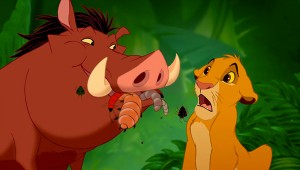
So Hakuna Matata is a balm for the psychological trauma of being cut off from the familiar.
And it is also a way of saying that being away from home is a feature rather than a bug.
Fenzel
But is it? Simba just goes right home afterward.
Ryan
I was thinking about this.
So “Hakuna Matata” is an actual Swahili phrase. It roughly translates to “No Problem,” so close to how it is used in the song.
But it is largely used in what I would call “resort Swahili,” along with the kind of archaic greeting “Jambo!”
These have older roots in Swahili, but became a signature piece of a more limited Swahili used during colonialism and then in the post-colonial tourist boom.
A lot of this is summed up in a popular Kenyan Tourist Song:
Which basically translates to “Hello! Hello Mister! How are you doing? Very Well! Visitors are welcome. Our Kenya! No Problems!”
Fenzel
Which meshes uncomfortably with the old stereotypes in American culture at least of Black people being simple and smiley and living out in the country, carefree and happy all the time.
Ryan
In more conversational Swahili, there are similar phrases that are used much more often than “Hakuna Matata.” “Hakuna Shida” (basically “no problem”) and especially “Sawa sawa” (which basically means, “It’s Fine” or “No Big Deal”, and which is used frequently).
But Hakuna Shida and Sawa Sawa are a little more double-edged. More like “Well, it is a problem, but we’ll deal with it and then it won’t be a problem anymore.”
Yeah, so I think the usage of “Hakuna Matata” in the Lion King is that Simba’s time with Timon and Pumbaa is basically a vacation. It is Lion Camp David, or Lion Freshman Outdoor Orientation Trip.
Fenzel
It’s like the idea of college where no one works and everyone parties: the veritable Animal House.
Ryan
I think there is a sense in which Simba could choose to go on permanent vacation and stay (basically becoming an expat), but he chooses a more “Hakuna Shida” approach over “Hakuna Matata”
Fenzel
Ah, interesting.
Ryan
So there are problems, but they won’t crush him, and he’ll go back and deal with the mess with a more robust coping mechanism. It is an adaptation, right? I noticed that both “Bare Necessities” and “Hakuna Matata” involve eating bugs under a log. In “Bare Necessities” it is basically presented as just second nature… here is what you do, because that is what bears do.
In “Hakuna Matata” there is a lot more of an acknowledgement by Timon and Pumbaa that “yeah it is gross, but it works,” as this isn’t their natural home or diet either.
Fenzel
It’s interesting to look at this in the context of parents seeing these movies with children. Inside Out has a similar arc as well.
The parents want the children to have fun and no responsibilities for the moment, but they know that tragically children grow up, and they also want to see accepting the responsibilities of adulthood and social integration into the adult world affirmed as good things. So the kids watching the movies connect with and live in the silly parts, and the older the audience gets the more its interests skew to the beginning and end of the movie.
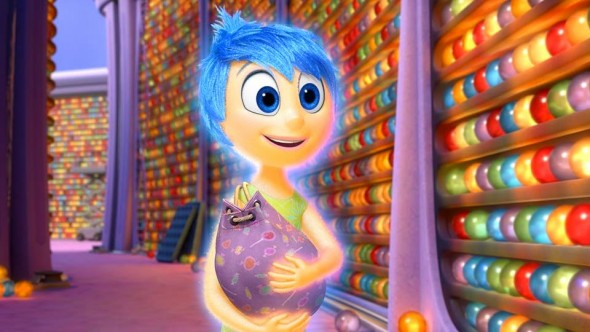
There’s a dramatic irony in the hypocrisy of the “Jungle Party,” because the adults know and accept it will end and the kids do not and think it is good for its own sake.
But the ethnic coding of all this also has an odd resonance with white culture, because there’s a time in your life to go travel and live in far off places and make friends with exotic strangers, and it’s all okay as long as you end it and come home where you belong.
Ryan
Well, if you don’t come home, it becomes Heart of Darkness/ Apocalypse Now, right? I’d love to see Pixar’s Heart of Darkness or Dreamworks’s Lord Jim.
Fenzel
Ha! Yes! Eugene O’Neil’s The Emperor Shrek.
Ryan
The Iceman Shreketh
Fenzel
Right. Except if you’re Kipling, it becomes “Rikki-Tikki-Tavi.” The cobras are already in your house so you’d better welcome the mongoose into your family or your baby will die.
But to touch on that, why is it so much of a horror, a horror, to live in Cambodia in Apocalypse Now? I mean, there are a ton of bad things happening, but they’re happening to everybody, not just Kurtz. Why does he get to be the poet of despair just by virtue of staying in the jungle?
Ryan
So Kurtz should check his horror privilege?
Is there a model in fiction that threads the needle between Mowgli/Simba (going back where you belong after learning something from strangers) and Kurtz (the privileged poet of despair)?
Fenzel
I want to say Dora the Explorer, but I don’t think I know enough about Dora to be sure.
Because the thing about Simba, Disney Mowgli, and Kurtz is that home for them has a transcendental quality tied to their ideas of natural identity and “Jungle” strangeness.
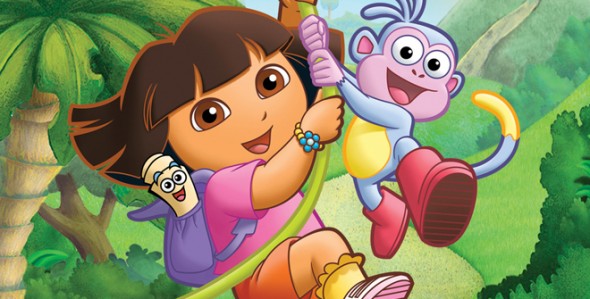
Ryan
“Swiper Stop Swiping from other Cultures!”
I think that is interesting. It is there in Dora’s name—she’s an Explorer, and what she does is navigate, and help where she can, but she doesn’t really editorialize.
And I actually think that is interesting in terms of some of what you were discussing above in terms of how these stories relate to approach to child development.
Fenzel
But Dora isn’t just a neutral human. She has her own ethnic quality (which you’d think Mowgli ought to have, and has in some depictions, but not in the Disney version).
With Kurtz I’m thinking privilege is too simple an answer. It’s that he extrapolates that because the place he goes to and never leaves isn’t home for him, then no place can be home for anybody.
Dora I have the sense recognizes that she and Diego and their family have their own place, which is not a transcendent human or default place, but which they can also teach other people about, and when she explores she sees places where other beings live, and it’s closer to the Kipling idea where the adventure is instructive rather than just different.
Plus, let us not forget that Dora has a backpack, which none of the other characters have. None of them carry things with them when they go places. Kurtz doesn’t even bring his hair.
Ryan
The thing I associate with Dora is her asking you a question and then staring at you and waiting for you to tell her what to do. Dora watches and waits before acting. She doesn’t impose.
Fenzel
Maybe Dora is convenient here because she lets me project onto her what I need her to be in this tangle of interpretation. Dora’s backpack isn’t full of her stuff, it’s full of your stuff.
Ryan
I actually think Rachel D and I once joked about a PhD dissertation on Dora called “Unpacking the Backpack: Intersectional Identities in Dora the Explorer”
Fenzel
Answering your question above about a middle ground here looks like a job for a truly great Wikipedia page: List of Fictional Feral Children.
Actually I don’t think lists like this are usually all that helpful, as they are driven by the specific enthusiasms of others, flattened out by the listing, so it’s hard to connect them to your own ideas and inspirations, but it’s fun they exist. I’m not a huge TV Tropes fan, for example. Though I enjoy that it exists.
Ryan
It is funny you say that, because when you posted the Feral Children Wiki page, I went to look for TV Tropes coverage and found the related ideas of “Wild Child” and “Raised by Wolves”.
Fenzel
Ha! And so you and I go into the jungle ourselves!
Ryan
I think the interesting one for me on the Wikipedia list is Romulus and Remus.
Not least because it reminds me of one of my favorite Mountain Goats songs, which draws on the Romulus and Remus Myth:
I guess this idea of “Founding a New City” is interesting in the context of what we’ve been talking about. Rather than either going home or staying in the jungle, you build a new home.
Fenzel
Going back to The Jungle Book, this relates to Bagheera the panther and the idea of the “law of the jungle.”
The second King of Rome, after Romulus, was Numa Pompilius, the law-giver. A lot of ancient pseudo-historical mythology has people like this, who present new civilizations with laws. It’s one of the steps in setting the distinction between nature and civilization.
But the jungle of The Jungle Book is post-Numa. It has its own laws. The animals are in their own ways already “civilized.”
It’s difficult to conceive of the “wolfness” of Romulus and Remus in the context of Rome, I feel. It’s something that belongs in cults and mysteries. Especially when you consider the Rape of the Sabine Women in context, the early history of Rome before the city really took place was even more chaotic and hostile than these fictional ideas of the jungle.
Ryan
Yeah it is interesting, as I recall, Romulus and Remus were more suckled by the wolf more than they were raised by her, right? Weren’t they raised by peasants of some kind?
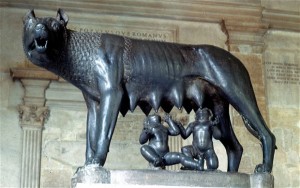
Fenzel
They were found and raised by shepherds, like Oedipus. Also before they founded Rome they staged a coup in a different city and Romulus murdered his brother. Dora and Diego they are not.
Ryan
“Grab your backpack, let’s go found Rome!”
Those details of the Romulus and Remus story that you just laid out do speak to their wolf-ness (and their broader wildness) in a way, at least in terms of violence.
Fenzel
The stories we have of Romulus and Remus were for the most part consolidated and made coherent by political strategists mapping the history of the Julio-Claudian imperial family, so there’s a big clash with the social values they were said to lead to by destiny, prophesy and divine design, things like mercy for the conquered, the rule of law, the household gods.
It’s not common as far as I can tell to think of the Romans as “badass wolf people who will effing kill you!” Their martial aggressiveness and violence didn’t really come with that kind of narrative. But it makes sense. As I mentioned, there were lots of cults and mysteries and we don’t get a great sense of what their culture was actually like just from the statues and epic literature.
Sure the culture is invested in going out and “civilizing” foreign peoples, but with their animal totems and rough-hewn origin myths, there’s a deeper sense that “We have found the jungle, and it is us.”
That makes me think of one more Mowgli substitute that might tie it together: Guns ‘N Roses.
When Axl sings “Welcome to the Jungle,” he’s not really talking about a place you go to in order to learn from temporarily and then go home. He says straight out that you’re going to die, presumably here. And he’s also not talking about a place that is foreign to everyone and fundamentally alienated, either. They have fun and games. They have everything you want. And he’s not talking about a Dora the Explorer jungle, where he’s not doing anything without you and everything happens at a collegial pace and in the spirit of cooperative exploration.
Welcome to the Jungle, somewhat surprisingly, doesn’t speak to the state of normalcy that preceded it. The “welcomed to” might then be said to be born into it.
Ryan
There are only two certainties in Jungle: you are welcome there, and also you’re gonna die.
Fenzel
Now those are the bare necessities.
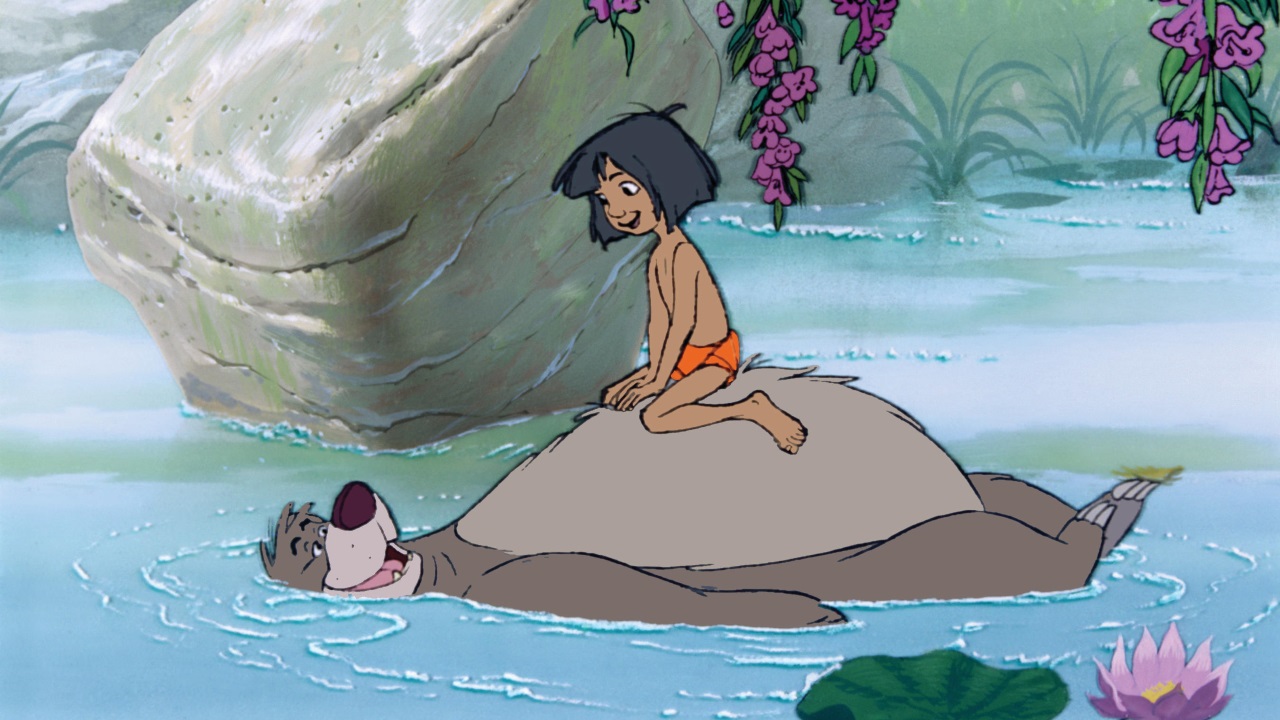
I always thought the key to the Jungle Book, and maybe The Lion King too, is that the “hakuna matata” philosophy breaks down when there’s a girl involved. That’s the end of the Jungle Book, right? He see a girl, and even though he’s pre-pubescent he’s enraptured enough to break all his ties with the jungle. In the Lion King, it’s the reemergence of Nala as a smoking hot lioness that triggers Simba’s return and ascension to the throne. You could argue it’s indirect, because obviously the monkey and sky James Earl Jones have roles to play, but it’s the female… the FIRST female this young man-cub / actual cub has ever seen… that makes the “no responsibilities” lifestyle impossible.
So “Hakuna Matata” could roughly be translated as “I got
ninety-ninezero problems, and a bitch ain’t one”?JC’s 2 Cents:
first, ANY work that contains anthropomorphized animals is ALREADY exclusively about humans. second, Matthew Belinkie is on to something. Kipling understood that you CAN keep wild animals as pets while they are in their “cub” stage, but, as soon as that mating extinct (and concurrent need to express dominance) kicks in, they become too dangerous to have around. likewise with Mowgli–once he becomes aware of women, he must return to HIS natural habitat. no one wants to go the bestiality route in their FICTION, at least. also, the jungle animals WANT to ditch him now that he’s on his way to becoming THE MOST DANGEROUS ANIMAL ON THE PLANET–a human being.
Mowgli Is Lying on Baloo’s Stomach and Bare Necessities Hug